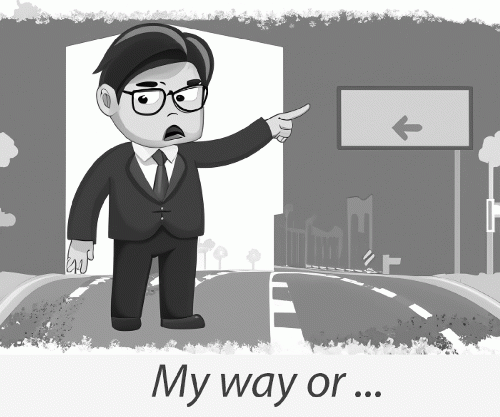An observation about instant runoff voting from a 2016 article in this series supports arguments in the most recently published article of this series. The observation is that to put an end to duopoly, much more is needed than to merely extend to voters an illusion. In the past I may have failed to emphasize how significant this observation is.
There surely are people who favor the two-party nature of our politics. Typically, their perspective is that with more than two political parties Congress would be gridlocked. In this view, Congress could never pass legislation because, with multiple political parties, no single party would ever be
able to force through its proposals. This argument takes the dismal position that, by nature, politicians lack any capacity for compromise. It surely seems that way today, but the more charitable view would be that this inflexibility is a natural consequence of allowing a two-party duopoly to survive.Would politicians continue behaving this way after realizing that it is highly unlikely that their party will ever regain control of government? Would they not learn the value of cooperation, often across party lines. Fortunately, with there being many viable parties, it would no longer be clear who the despised other side to reflexively oppose might be. Indeed, the opponents and allies would likely shift sides according to the legislative issue, no longer rigidly set according to party label. No doubt there would be a revival of the old-fashioned trading of you voting for my bill in exchange for me voting for your bill.
We know that some of the founders vainly hoped that the country could avoid having political parties. They had some experience with elections and may well have feared the advance of the very sort of battling two-party duopoly that now afflicts our politics. But the folly of this notion quickly became apparent with the election of John Adams, a member of the Federalist party, as the nation's second president. Perhaps there is no way to avoid the establishment of political parties, but we should consider the possibility that having many political parties might have much the same salutary effects these founders anticipated from having none.
What do we mean by a two-party duopoly? Surely it is not simply that there are exactly two political parties; the duopoly we now suffer with often includes additional "third parties". Common use of the term seems to be that while there may be more than two political parties, only the dominant two have any realistic chance of winning elections.
The voting system we generally use, plurality voting, asks voters to choose just a single candidate to support. Plurality voting works well, but only for elections with a maximum of two candidates. This voting system is defective even in the context of our current two-party duopoly because non-viable third parties can alter election outcomes by drawing more votes away from one viable candidate than the other.
Plurality voting is especially unsatisfactory for our primary elections which often have more than just two viable candidates. And in so many states, the general election is effectively guaranteed to one of the two parties. In these cases, the very flawed primary election is the only important election.
Plurality voting does let voters enjoy a convenient illusion when faced with two unsatisfactory viable candidates. By casting a vote for a third party or perhaps even a write-in candidate the voter can make a pretense doing what seems honorable. But the voter surely has some vague recognition that this really is a failure to participate in the only significant role of the election, which is to choose between the viable candidates.
Unfortunately, helping voters to feel better is also the primary benefit of instant-runoff voting (a.k.a ranked-choice voting). Voters are invited to enjoy voting their honest support for the candidate they truly prefer but they are assured that their support will surely migrate into support for the viable candidate they may prefer but perhaps do not particularly support. The voter likely does feel some relief, but that feeling is founded on another convenient, though transparent, illusion. The only way this subterfuge could lead to a win for the third-party candidate is if a majority of voters miraculously choose to give more support that same third-party candidate than to any viable candidate (despite recognizing that candidate has no chance of winning). It could happen, but it seems highly improbable, much like winning big in a lottery. And it is almost impossible to imagine that this could re-occur with sufficient frequency to cause this additional party to achieve viability. Ranked-choice voting provides a well-disguised and appealing illusion, but it seems quite unsuited for putting an end to the two-party duopoly.
Encouraging voters merely to feel better about voting more honestly is a pale alternative to allowing those voters to choose from a more generous number of viable alternatives. That is what it would take to end the duopoly and if that is our objective, we must insist on much more from the new, alternative voting system. It cannot merely provide an opportunity for a voters to cast ineffective votes in elections that still unfairly favor the two dominant parties. It must provide a mechanism for promoting the viability of additional candidates on ballots.
This is why we must consider systems (such as balanced approval voting) that are both evaluative and balanced. These two properties actively mitigate the power held by the two political parties when those two parties become dominant. Such voting systems eliminate the bias that structurally favors the most famous candidates, and these systems provide hope for smaller parties and for outstanding independent candidates to become viable. Perhaps there are other voting systems that also accomplish these important objectives, but...





